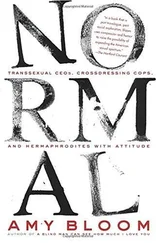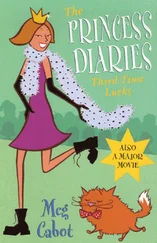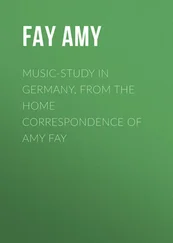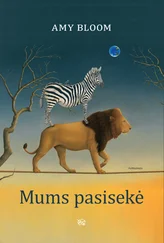When the soldiers came back, business boomed for the car dealers and the beauty parlors and for me.
Francisco and I had found a pair of rooms for my little business on Danny’s first day of school. Francisco kept muttering, High traffic, low rent, easy parking, and he found what he was looking for. He’d negotiated my low rent with a man his age and size and when they finished, they smoked their cigars on the back step. Who’d you say I was, I asked. You’re my youngest daughter, he said. Plus, you have a gift, just like my late wife, may she rest in peace. You won’t charge him for a reading, if he ever wants one and you lock up by eight o’clock. No funny business.
We carried up my shepherdess lamp and two small chairs and the folding table I brought back from La Bella Donna. (Take the chairs, Carnie said. Take the tablecloth too, Bea said. Good luck, honey, they cried out from the steps of La Bella Donna.) We bought four fat safety candles from the hardware store and covered the furniture with pieces of Iris’s old dresses (lace over black silk for the table and green velveteen stapled to the chairs). Francisco painted every piece of glass black. He got a bolt of chicken wire for the windows and layered old scarves and sheets over them until every view was of a cloudy night sky.
Psychics, like dress designers and psychoanalysts and madams, have to pay attention to their place of business. If I’d had money, I would have gone for opulent fabric and Oriental rugs and maybe a little samovar whistling in the corner. Malachite objects would dot the shelves, along with a mysterious, large mahogany box and a faded photograph of a sad-eyed little girl with long curls and a floppy satin bow. Depending on the customer, she could be a relative, a murdered Romanov, my young self (And who’s to say that you yourself are not an escaped Romanov, is what my father would have said), or my spiritual guide. (You’d be amazed. Every kind of child, every kind of medieval healer, every kind of dear departed auntie, serves as someone’s guide to the spirit world. I have noticed that no one uses foreigners, unless they can master the accent. You don’t see Italian psychics, for example, with Norwegian guides. Or vice versa. The afterlife is worse than East Brooklyn.)
Francisco liked my setup. He liked that the women could pick up cookies from Stricoff’s and a roast chicken from Arrandale Rotisserie and finish their reading with me before the kids came home from school. He said he wasn’t sure that men would appreciate all that. But, he said, a man who has to go to a psychic is in such deep shit, he doesn’t care where he is.
I hung a small sign in the window, ASSOCIATION FOR METAPHYSICAL RESEARCH. Like the Star of David at Danny’s orphanage, meaningful to those in the know. I offered free readings to the ladies at Stricoff’s bakery, in exchange for day-old everything. I offered a two-for-one for sisters and I offered packages of five, for those who expected to need it. The whole world was bursting with things for women to buy, and I was one of them.
19 Spring Will Be a Little Late This Year
Letter from Gus
Trutzhain, Germany
August 1945
Dear Evie,
A tree is measured best when it’s down. That’s what they said about Lincoln and that’s what they’ll say about Roosevelt. I hear that in Tel Aviv, they trimmed all the flags in black and flew them at half-mast. I hear a Negro man played Haydn on the accordion as the funeral procession passed through Warm Springs, Georgia. The women here are weeping like they’re all Eleanor. Maybe all Jewish women are Eleanor Roosevelt — better-looking, not as good a writer, but the good heart, the sharp mind, the endless mixing into other people’s business. We have four rabbis now, so we had a lively service. No one here says, He didn’t do enough. One man here, his brother was on the St. Louis when it got turned around and the relief people got him to Israel, where he’s now eating oranges. So, no harm, no foul. The people here loved that fucking jaunty cigarette holder, the stiff upper lip, the expensive overcoat. Our goy. I remember the Republican bankers and the fat cats who accused him of being secretly Jewish. The Jew Deal. President Rosenfeld. Clearly, there was no other explanation for the man’s decency and concern for the poor. Flattering, I guess.
The Jews say there were three worlds, Drei velten:
Die velt (this world),
yene velt (the next world)
Roosevelt.
I can make a joke in Yiddish, which brings me to—
I’m Jewish now, which I wasn’t when we knew each other. (I don’t think it’ll bother you but the anti-Semitism of decent people keeps surprising me.) With four rabbis hanging around, we steamrolled the conversion process.
I worry that when we next see each other, I’ll be looking at a grown woman, smart as a whip, funny and straight as a die, and you’ll see a dried-up piece of salami, with a bum leg and a missing incisor. Did you go to college yet? Did some smart guy propose?
I have to tell you, I’m not exactly making a living. I got myself to a DP camp in Trutzhain, not the best, not the worst. The Trutzhainians, the Trutzhainiks, got rid of all the Nazi criminals. (Except the ones they didn’t get rid of, who are back in their old offices, pretending they were fucking monarchists. I prefer the honest bastards, spit-shining their boots in prison and greeting each morning with “Heil Hitler!” ) Then the camp had to make room for the Poles. (Forgive me, but the most anti-Semitic people on earth, with the possible exception of the Ukrainians, who are butchers. I’m hoping none of your people are either one.) We’ve got Polish Jews, some nuns, some whores, and some German Quakers. The lice are unstoppable. You shave your head on Monday and find the little bastards back on Friday. There’s not enough food, and some people are still wearing their uniforms from the camps, prayer shawls wrapped around their feet, tucked inside the boots they’ve been given. God help them. Once a week, we count off to see who’s died.
I came the way most of us came, limping and bare-ass, the soles of our shoes tied on with string, or wood slabs held to our feet with half a shirt. We had learned to leave everything behind, except food and weapons. I had some rabbit meat and a knife tucked into my belt. The man next to me, a Gypsy who’d lost his way, had black rolls in every pocket and a crowbar down his pants leg. We carried the others, dragged the dying, and dropped the corpses at the feet of the nurses. Some of these people are goodness itself. The rest are the usual mix: liars, cheats, lazy bastards, sadists who couldn’t beat a man in a fair fight but will hold back a bar of soap from forty kids with running sores.
I’m teaching English — what do you think of that? We call it Rudimentary Conversational English. I give everyone a name Americans will be able to pronounce. When a lot of Jews named Bob wash up in New York with heavy accents, don’t be surprised. I’m teaching them all to say, “Gus sent me.”
I have a pal, Lev, from Moscow. He told the Americans that he’d be tortured and murdered if he went home. He recited our Declaration of Independence — phonetically. He doesn’t speak English yet. He said, The Poles won’t budge and neither will I.
In July, they sent a couple of hundred Polish Jews home, in patched pants and jackets, wearing borrowed shoes, carrying one loaf of bread each. They were murdered in Kraków, in Sosnowiec, and in Lublin. In Kielce, they were beaten to death by eight hundred Polish Worker party heroes, who came at them with crowbars and clubs. When some decent people carried the Jews to the hospital, Polish soldiers robbed them. They stole the shoes off the unconscious. Jews ran to the train station and got on trains going anywhere. Passengers threw the Jews off the moving trains. Our Polish correspondent reported that Cardinal August Hlond said that violence in Kielce was unfortunate and probably caused by the concerns of Poles for the safety of their children. Cardinal Adam Stefan Sapieha said that the Jews had brought it on themselves. So, in the last year, a hundred thousand Jews — don’t say we can’t take a hint — left Poland. Here in Trutzhain, we’re not going anywhere. Obviously, I’m a special case. The International Red Cross workers can’t believe I’m even here. They refer to it as the “misunderstanding.” I agree that there seems to have been a misunderstanding.
Читать дальше












